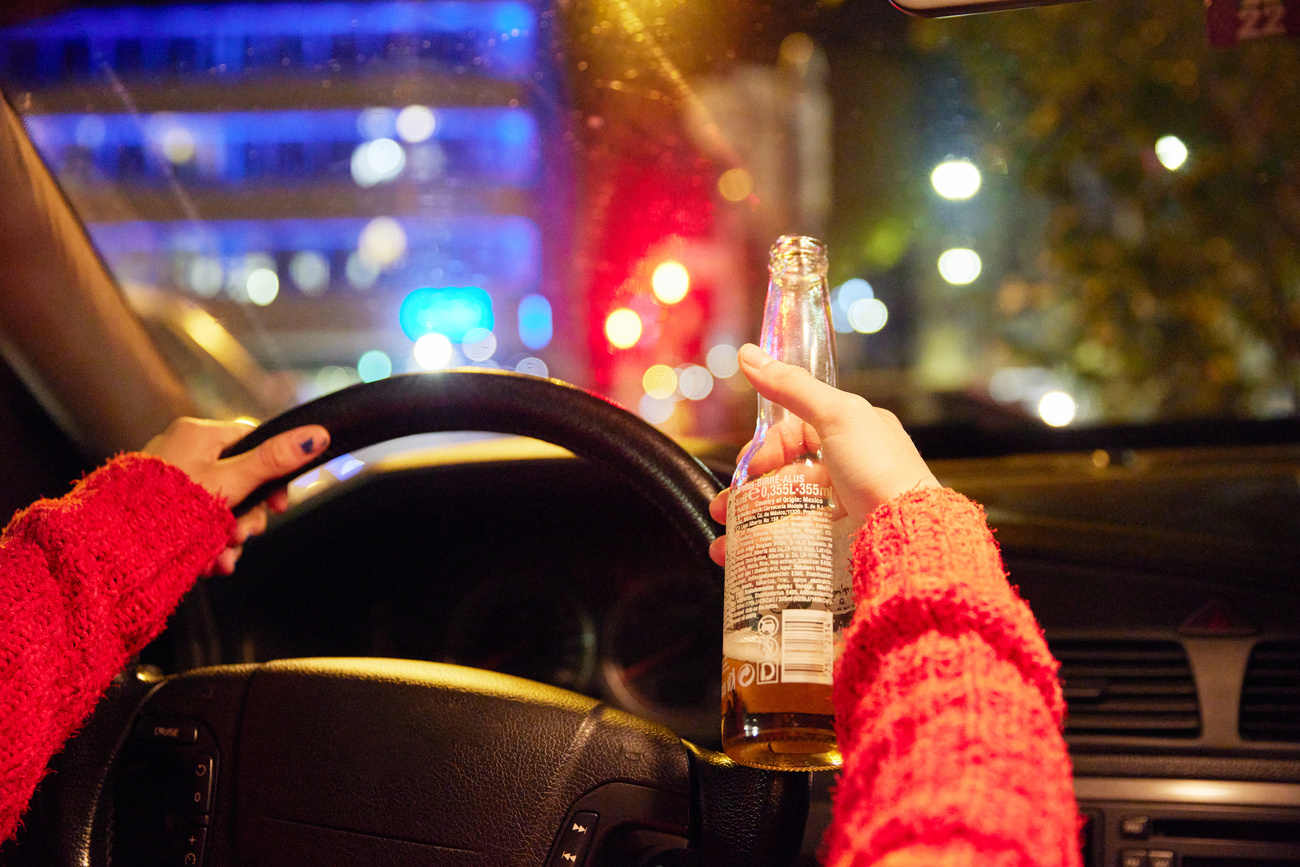
Study finds cocaine popular among drivers in Switzerland

More than one in ten people get behind the wheel of a vehicle in Switzerland while under the influence of dangerous substances, according to a new study.
Between 10-15% of drivers who took part in the study had consumed a substance likely to impair their ability during the previous 24 hours, said Marc Augsburger of the forensic medicine unit at the universities of Geneva and Lausanne.
“We expected to find cannabis among the most prevalent illegal substances. But it turned out that this is not the case – it’s cocaine,” he told Swiss public television, RTS.
The police are trained to spot potentially dangerous driving. However, it is more difficult to detect suspicious cases of driving under the influence of drugs and medication, a police official told RTS.
In Switzerland, in 2021, around 200 people lost their lives in traffic accidents, according to statistics from the Federal Roads Office.

More
Drink-driving crashes increase in Switzerland

In compliance with the JTI standards
More: SWI swissinfo.ch certified by the Journalism Trust Initiative






























You can find an overview of ongoing debates with our journalists here . Please join us!
If you want to start a conversation about a topic raised in this article or want to report factual errors, email us at english@swissinfo.ch.